Related Research Articles

Elite is a space trading video game. It was written and developed by David Braben and Ian Bell and was originally published by Acornsoft for the BBC Micro and Acorn Electron computers in September 1984. Elite's open-ended game model, and revolutionary 3D graphics led to it being ported to virtually every contemporary home computer system and earned it a place as a classic and a genre maker in gaming history. The game's title derives from one of the player's goals of raising their combat rating to the exalted heights of "Elite".
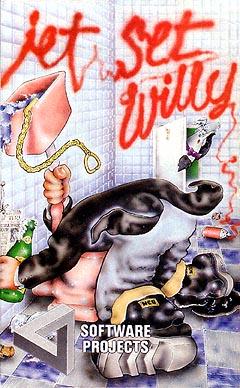
Jet Set Willy is a platform video game written by Matthew Smith for the ZX Spectrum home computer. It was published in 1984 by Software Projects and ported to most home computers of the time.
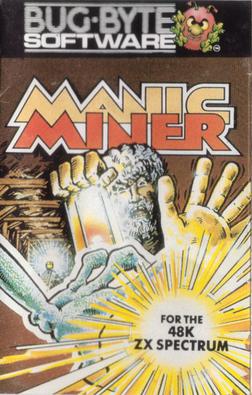
Manic Miner is a platform game written for the ZX Spectrum by Matthew Smith. It was published by Bug-Byte in 1983, then later the same year by Software Projects. The first game in the Miner Willy series, the design was inspired by Miner 2049er (1982) for the Atari 8-bit computers. Retro Gamer called Manic Miner one of the most influential platform games of all time, and it has been ported to numerous home computers, video game consoles, and mobile phones.
Rush'n Attack, also known as Green Beret in Japan and Europe, is a run-and-gun and hack-and-slash video game developed and released by Konami for arcades in 1985, and later converted to the Nintendo Entertainment System and home computers. Its North American title is a play on the phrase "Russian attack" due to its Cold War setting. It was ported to home systems and became a critical and commercial success for arcades and home computers.

Emlyn Hughes International Soccer (EHIS) is a soccer computer game first released in 1988 by Audiogenic Software Ltd. The game is named after the popular English footballer Emlyn Hughes. It initially appeared on the Commodore 64, with other versions produced for the Amstrad CPC, ZX Spectrum, Atari ST and Amiga.
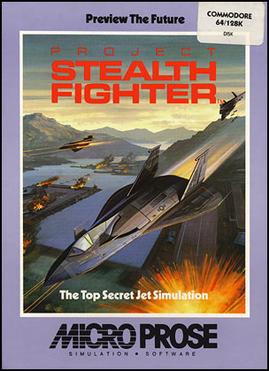
Project Stealth Fighter is a combat flight simulator released for the Commodore 64 in 1987 by MicroProse, featuring a fictional United States military aircraft. During the time of the game's release, there was heavy speculation surrounding a missing aircraft in the United States Air Force's numbering system, the F-19. Project Stealth Fighter was later renamed F-19 Stealth Fighter and was remade in 1988 for the 16-bit systems with much improved graphics.

The Hobbit is an illustrated interactive fiction video game released in December 1982 for the ZX Spectrum home computer. Based on the 1937 book The Hobbit, by J. R. R. Tolkien, it was developed at Beam Software by Philip Mitchell and Veronika Megler and published by Melbourne House. It was converted the Commodore 64, BBC Micro, Oric, and other home computers. By arrangement with the book publishers, a copy of the book was included with each game sold.
Interceptor Micros, also known as Interceptor Software and later as Interceptor Group, was a British developer/publisher of video games for various 8-bit and 16-bit computer systems popular in Western Europe during the eighties and early nineties.
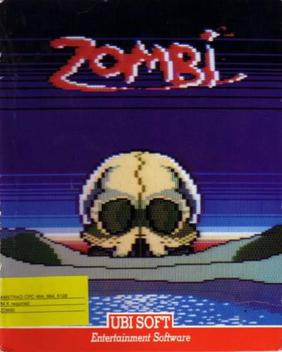
Zombi is an icon-driven action-adventure video game. It was Ubisoft's first publication, released in 1986. It was programmed by Yannick Cadin and S. L. Coemelck, with graphics by Patrick Daher and music by Philippe Marchiset.

The Great Escape is a video game which shares a title and similar plot to the film The Great Escape. It was programmed by Denton Designs, which went on to produce the similarly acclaimed Where Time Stood Still. The Great Escape was published by Ocean Software in 1986 for the ZX Spectrum, Commodore 64, Amstrad CPC and DOS. The well-known convertor Trevor Inns created the Commodore 64 version

Bad Street Brawler, originally released for home computers as Bop'n Rumble in North America and as Street Hassle in Europe, is a 1987 video game by Beam Software. Versions were released for the ZX Spectrum and Commodore 64 and MS-DOS by Melbourne House and Mindscape with a NES version following in September 1989. The NES version was one of only two games specifically designed for use with Mattel's Power Glove.

Graphic Adventure Creator is a game creation system/programming language for adventure games published by Incentive Software, originally written on the Amstrad CPC by Sean Ellis, and then ported to other platforms by, amongst others, Brendan Kelly (Spectrum), Dave Kirby and "The Kid" (C64). The pictures in the demo adventure, Ransom, were made by Pete James and the box cover art by Pete Carter.
Alligata Software Ltd. was a computer games developer and publisher based in Sheffield in the UK in the 1980s.
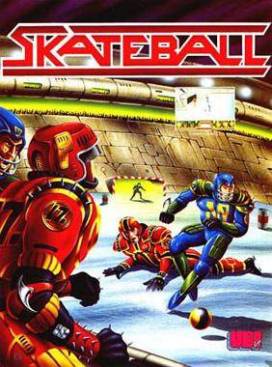
Skateball is a video game developed by Ubi Soft. It features a violent futuristic sports game part ice skating, part soccer. It was released in 1989 for the Amstrad CPC and GX4000, Atari ST, Commodore 64 and ZX Spectrum.

Colossus Chess is a series of chess-playing computer programs developed by Martin Bryant, commercially released for various home computers in the 1980s.
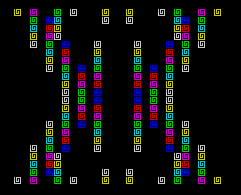
Psychedelia is an early light synthesizer developed by Jeff Minter and published by Llamasoft in 1984. It was converted to the MSX and ZX Spectrum by Simon Freeman.

Grand Prix Simulator is a racing game developed by The Oliver Twins and published by Codemasters for the ZX Spectrum, Amstrad CPC, Commodore 64, and Atari 8-bit computers. The ZX Spectrum conversion was done by Serge Dosang. The game was endorsed by Ayrton Senna's 1986 Formula One teammate Johnny Dumfries.

Tomcat is a video game published in 1989 in the UK by Players Software. The game was released on the Acorn Electron, BBC Micro, Commodore 16, Commodore Plus/4, Commodore 64, Amstrad CPC, and ZX Spectrum as a budget title. It was also on a Your Sinclair magazine cover tape. Tomcat is a vertically scrolling shooter in which the player takes control of an F14 Tomcat fighter aircraft, shooting at both air and ground targets whilst flying over four levels.
Silicon Dreams is a trilogy of interactive fiction games developed by Level 9 Computing during the 1980s. The first game was Snowball, released during 1983, followed a year later by Return to Eden, and then by The Worm in Paradise during 1985. The next year they were vended together as the first, second and last of the Silicon Dreams.
MC Lothlorien was a video games developer and publisher based in United Kingdom. The company was founded in 1982 and initially specialised in developing software for the ZX Spectrum, Dragon 32 and BBC Micro computer platforms on its own Lothlorien publishing label.